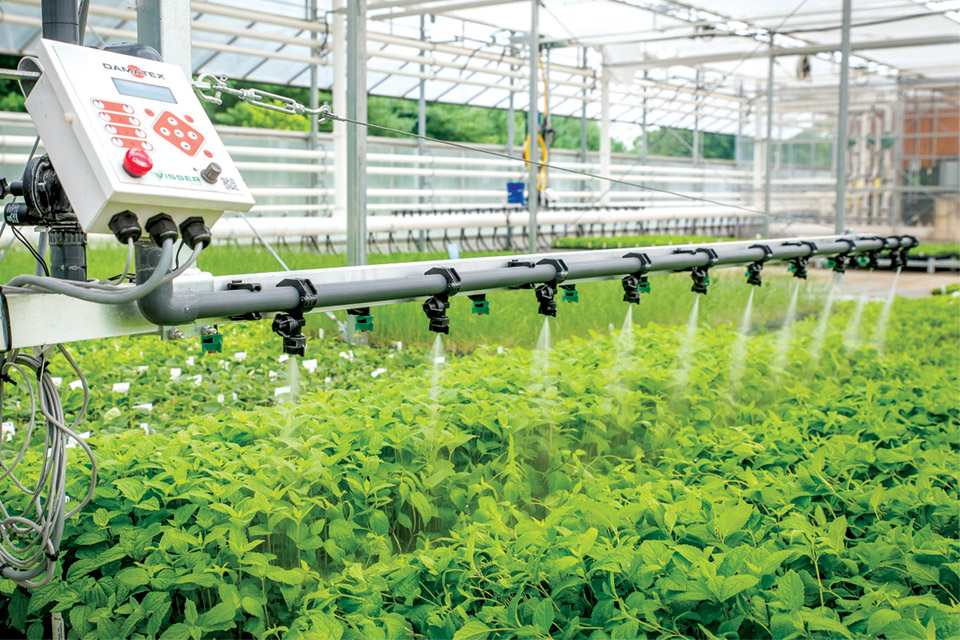AI and IoT: Smart Solutions for Water Management and Conservation
Table of Contents
Introduction
How can we effectively manage our most vital resource, water, in the face of increasing global demand and climate change challenges?
Water management has become a critical issue as the world grapples with water scarcity, inefficient usage, and the impact of climate change. Leveraging advanced technologies like Artificial Intelligence (AI) and the Internet of Things (IoT) can revolutionize water management, leading to significant improvements in conservation and efficiency. This blog explores how AI and IoT are transforming water management, making it more sustainable and effective.
The Importance of Water Management
Effective water management is essential for ensuring the sustainable use of water resources. With growing populations and industrial demands, coupled with the effects of climate change, traditional methods of managing water resources are no longer sufficient. Modern water management needs to be smarter, more efficient, and adaptable to changing conditions. Here’s where AI and IoT converge to offer solutions.
AI and IoT in Water Management
AI and IoT technologies offer innovative solutions for various water management challenges. By integrating sensors, data analytics, and automation, these technologies provide real-time insights and control over water systems.
- Smart Sensors and IoT Networks
IoT devices, such as smart sensors, are deployed across water infrastructure to monitor various parameters like water quality, flow rates, and levels. These sensors collect data continuously, providing real-time information that is crucial for efficient water management. For instance, smart meters installed in households and industries help monitor water usage patterns, detect leaks, and promote water conservation. - Predictive Analytics and AI
AI-powered predictive analytics can forecast water demand, detect anomalies, and optimize water distribution. Machine learning algorithms analyze historical data to identify trends and predict future water needs. This helps water utilities to plan and allocate resources more effectively, reducing wastage and ensuring a reliable supply. - Leak Detection and Prevention
Water loss due to leaks is a significant issue in many regions. AI and IoT technologies can detect leaks early by analyzing data from pressure sensors and flow meters. Advanced AI algorithms can pinpoint the location of leaks, enabling prompt repairs and minimizing water loss. This not only conserves water but also reduces the costs associated with water loss and infrastructure damage. - Water Quality Monitoring
Ensuring the quality of water is as important as managing its quantity. IoT sensors can monitor water quality parameters such as pH levels, turbidity, and contamination in real-time. AI systems analyze this data to detect pollution sources and ensure compliance with safety standards. This is particularly important for drinking water supplies and industrial processes that require high-quality water. - Automated Irrigation Systems
Agriculture is a major consumer of global freshwater resources. AI and IoT-enabled automated irrigation systems optimize water usage in agriculture by analyzing soil moisture levels, weather conditions, and crop requirements. These systems can adjust irrigation schedules and amounts, ensuring crops receive the right amount of water at the right time. This not only conserves water but also enhances crop yields and reduces costs for farmers. - Smart Water Grids
Similar to smart electrical grids, smart water grids integrate AI and IoT to manage water distribution networks more efficiently. These grids can balance water supply and demand dynamically, reroute water to areas of need, and detect issues in real-time. This enhances the resilience and reliability of water supply systems, especially during peak demand periods or in emergency situations.
Benefits of AI and IoT in Water Management
Leveraging AI and IoT together in water management unlocks numerous benefits, including:
- Enhanced Efficiency: Real-time monitoring and data analytics improve the efficiency of water distribution and usage, reducing wastage and operational costs.
- Conservation: Advanced leak detection and automated systems promote water conservation, ensuring sustainable use of resources.
- Cost Savings: Early detection of issues and optimized resource allocation reduce maintenance and operational costs for water utilities and users.
- Improved Decision-Making: Data-driven insights support informed decision-making, helping stakeholders to implement effective water management strategies.
- Environmental Protection: Monitoring water quality and reducing wastage contribute to environmental protection and sustainability efforts.
You may also like:The Transformation of the Publishing Industry Through Digital Innovation
Conclusion
Water management is a critical issue that requires innovative solutions to address the challenges of scarcity, inefficient usage, and climate change. AI and IoT technologies are revolutionizing water management by providing real-time insights, optimizing resource allocation, and enhancing efficiency. By leveraging these technologies, we can ensure sustainable and effective water management, safeguarding our most vital resource for future generations.
FAQs
How does AI help in water management?
AI helps in water management by analyzing data to predict water demand, detect anomalies, and optimize distribution. It also aids in leak detection, water quality monitoring, and automated irrigation.
What role does IoT play in water conservation?
Utilizing real-time data from smart sensors, IoT devices monitor water usage, quality, and infrastructure conditions. This data helps in detecting leaks, optimizing irrigation, and ensuring efficient water usage.
Can AI and IoT technologies reduce water wastage?
Yes, AI and IoT technologies can significantly reduce water wastage by providing real-time monitoring, early leak detection, and optimizing water distribution and usage patterns.
Are there any cost benefits to using AI and IoT in water management?
Yes, using AI and IoT in water management can lead to cost savings through improved efficiency, reduced water wastage, early detection of issues, and optimized resource allocation.
What is a smart water grid?
A smart water grid integrates AI and IoT to manage water distribution networks dynamically. It balances supply and demand, reroutes water as needed, and detects issues in real-time to enhance system reliability and efficiency.
How do automated irrigation systems work?
Automated irrigation systems use IoT sensors to monitor soil moisture levels, weather conditions, and crop requirements. AI algorithms analyze this data to adjust irrigation schedules and amounts, optimizing water usage for agriculture.





